
Transforming Industries through Advanced Nylon CF
Carbon fiber reinforced nylon composite material refers to a modified composite material prepared by a certain production process with nylon as the base material and carbon fiber as the filler. This material has excellent properties such as high strength, high hardness, light weight, wear resistance, conductivity, anti-static property, etc., and is widely used in aerospace, military equipment, rail vehicles, automotive industry, household goods and other fields.
Nylon CF Reinforced Composites have several common application areas. They are widely used in the automotive industry for manufacturing parts like engine covers and gears due to their high strength and heat resistance. In the aerospace field, they can be found in structural components for lightweight and durability. They are also employed in the production of sports equipment, such as tennis rackets and bicycle frames, where strength and weight reduction are essential. Additionally, they are utilized in the manufacturing of industrial machinery parts for enhanced performance and longevity.
Product By Features
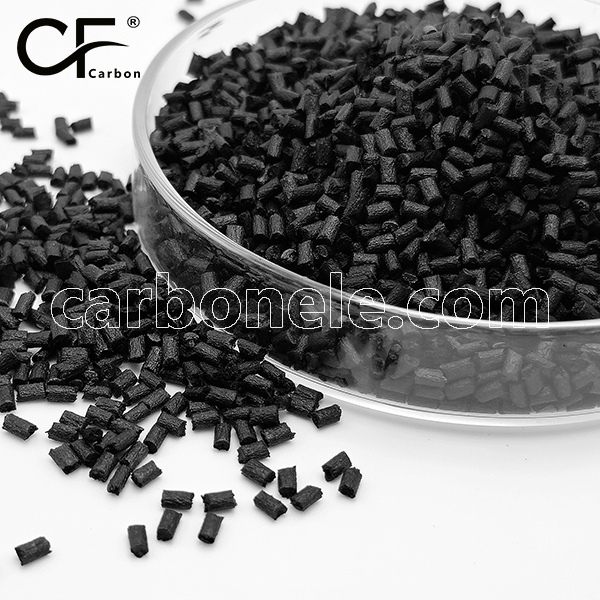
PA12-CF10 CF Nylon for Gears
PA12-CF10 is a high-performance nylon composite with 10% carbon fiber reinforcement, offering exceptional strength-to-weight ratio, wear resistance, and dimensional stability. Ideal for precision gears, automotive components, and industrial applications requiring lightweight durability. Features low moisture absorption, excellent fatigue resistance, and thermal stability (-40°C to +120°C). Reduces part weight by 30-50%…
Learn More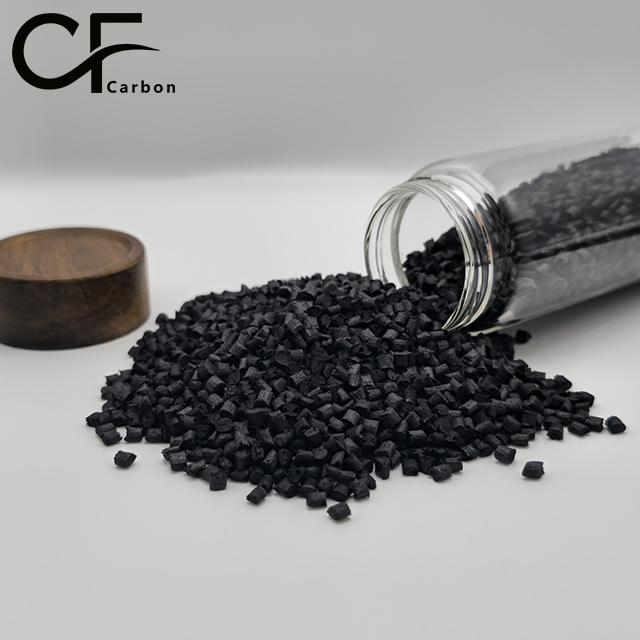
Granular Wear-resistant PA6PA66 CF Plastic Raw ...
Wear Resistance PA6PA66 CF Features: 1. Superior Wear Resistance (<3mg/1000 revs, 10x better than PA66) 2. Exceptional Fatigue Strength (>90% retention after 1M cycles) 3. Precision Dimensional Stability(±0.05mm,CTE<3×10-5/℃) 4. Lightweight Performance(1.38g/cm3, 60% lighter than metal) 5. High-Temperature Endurance (continuous 120C operation)
Learn More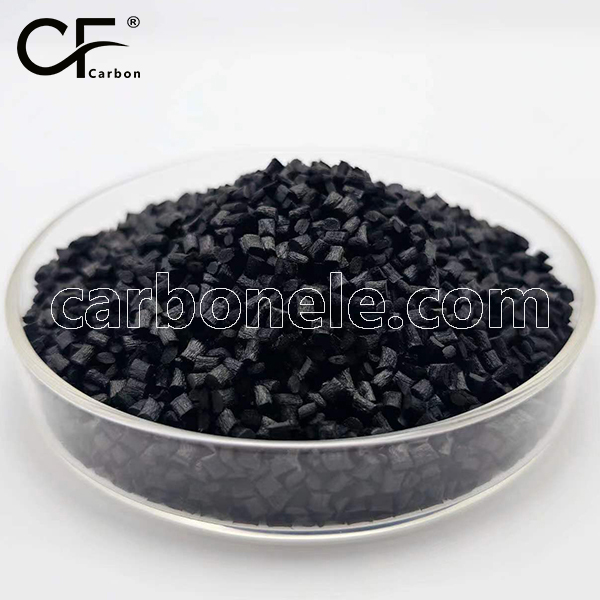
Toughened Grade PA6&PA66 CF Thermoplastic ...
1. High strength (Tensile≥200 MPa) 2. Lightweight (Density 1.3-1.4 g/cm3) 3. High rigidity (Modulus ≥15 GPa) 4. Fatigue-resistant (1M+load cycles) 5. Chemical-resistant (Acid/alkali stability) 6.Thermal-stable(HDT>200°C)
Learn More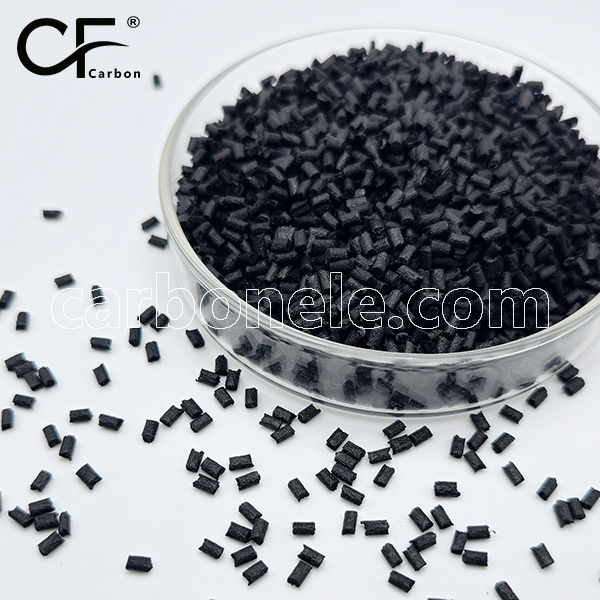
High Strength PA6/PA66 CF Thermoplastic Composites
PA6/PA66 CF composite merges PA6’s toughness with PA66’s heat resistance, supercharged by carbon fiber reinforcement. Delivering 280MPa strength, 210°C HDT, and 50% weight savings, it’s revolutionizing automotive and industrial applications.
Learn More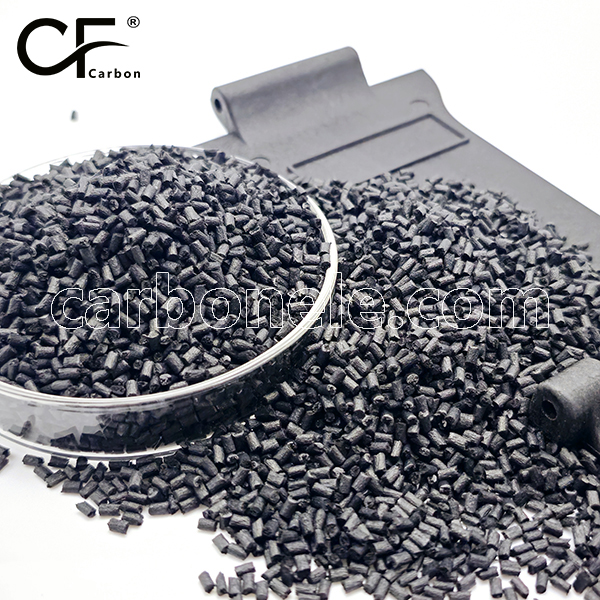
Flame Retardant PA66-CF Thermoplastic Composites
Flame Retardant PA66-CF Composite blends PA66’s versatility with carbon fiber reinforcement, delivering UL94 V-0 flame resistance (LOI≥28%), 200-300MPa strength, and 220°C heat resistance. Lightweight (1.4-1.5g/cm³) yet durable, it’s ideal for demanding automotive, aerospace and electronics applications.
Learn More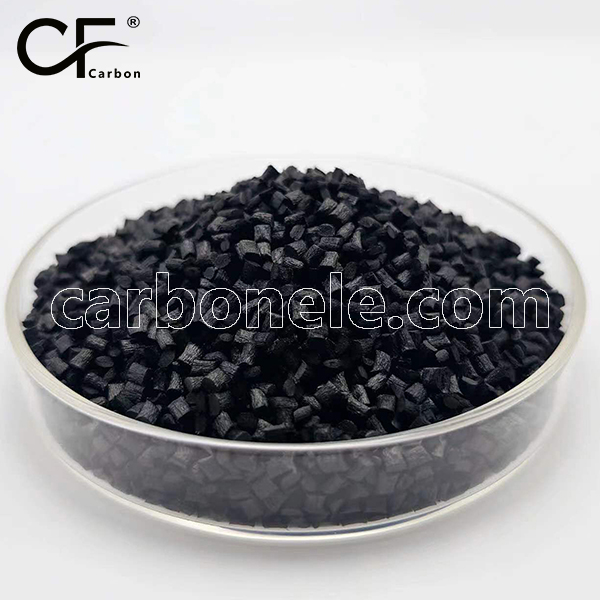
Melt Extrusion Grade CF-PPA Granules For 3D FDM...
CF-PPA Melt Extrusion Granules with 15%-30% carbon fiber offer high strength (150MPa), heat resistance (HDT 290°C), and low shrinkage (0.3%), ideal for FDM 3D printing of heat-resistant load-bearing parts like industrial jigs and functional prototypes.
Learn More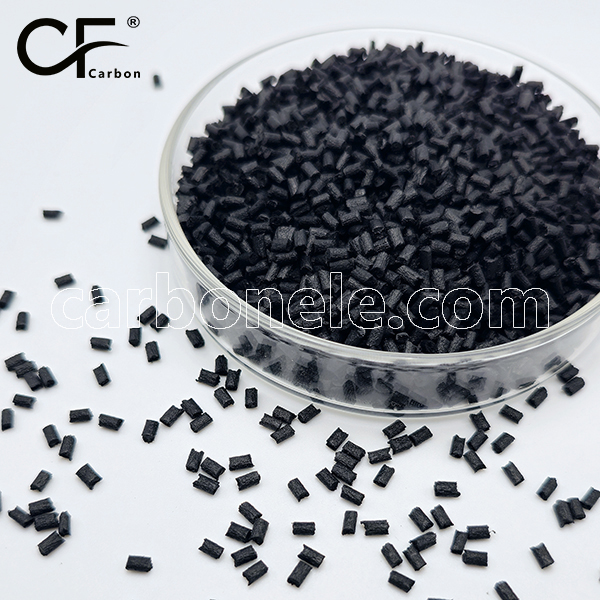
PA66-CF10 Carbon Fiber Nylon for Auto Parts
PA66-CF10 combines nylon’s versatility with 10% carbon fiber reinforcement, delivering 210MPa tensile strength and 255°C heat resistance. Ideal for automotive, electronics and industrial applications requiring lightweight metal alternatives with superior strength and dimensional stability.
Learn More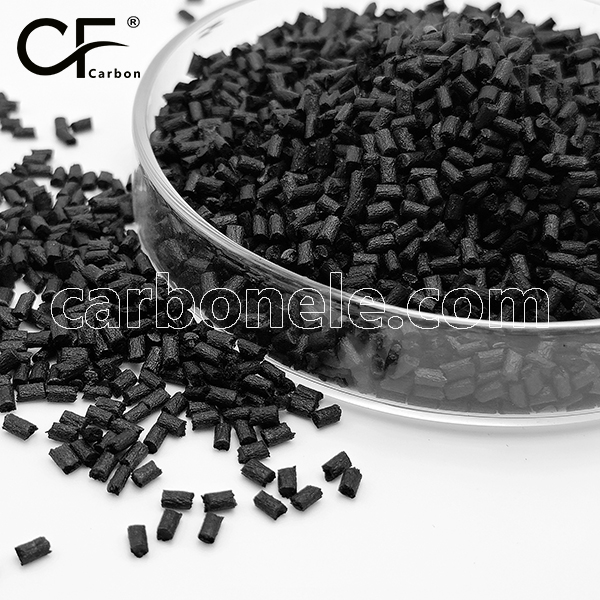
PA6-CF10 Carbon Fiber Nylon – High Strength
PA6-CF10 uses 10% carbon fiber reinforced nylon 6 matrix, with a density of only 1.3g/cm³, which is 50% lighter than aluminum alloy. It also offers a tensile strength of 180MPa and a flexural modulus of 8GPa.
Learn More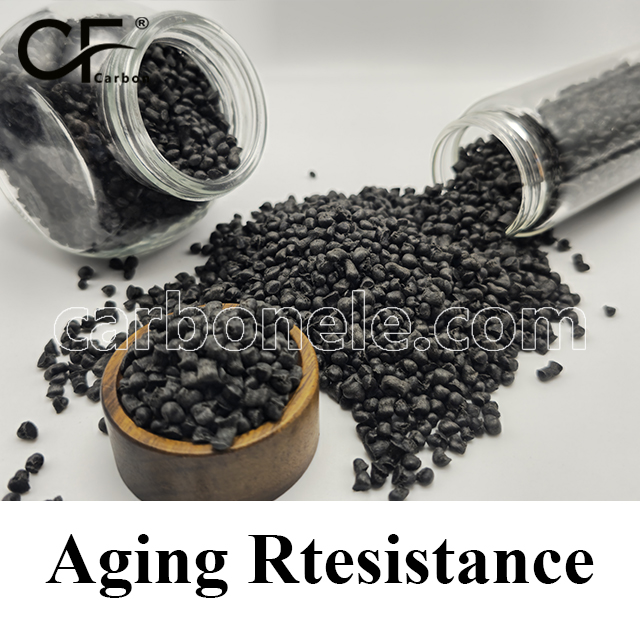
PPA-CF60 Lightweight Structural Components
PPA-CF60 is a high-performance polyphthalamide (PPA) reinforced with 60% short carbon fibers, offering exceptional stiffness (~23–25 GPa), high tensile strength (~230–245 MPa), and outstanding thermal resistance (HDT ≥ 300 °C). Ideal for replacing metal in structural parts exposed to high loads, heat, and chemicals.
Learn More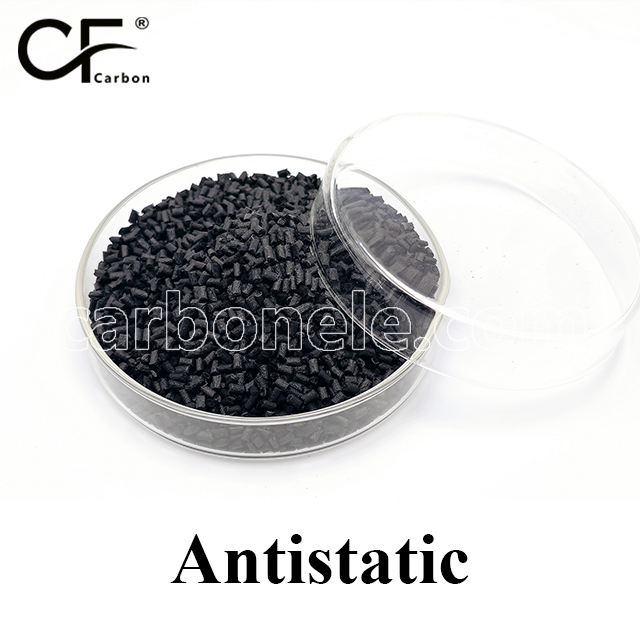
PPA-CF50 Fuel System Components
PPA-CF50 is a high performance, 50% carbon fiber reinforced polyphthalamide (PPA) thermoplastic, offering metal like stiffness, excellent thermal resistance (HDT ≥ 290 °C), and outstanding chemical durability. Ideal for structural, high load, and high temperature applications in automotive, electronics, and industrial components.
Learn More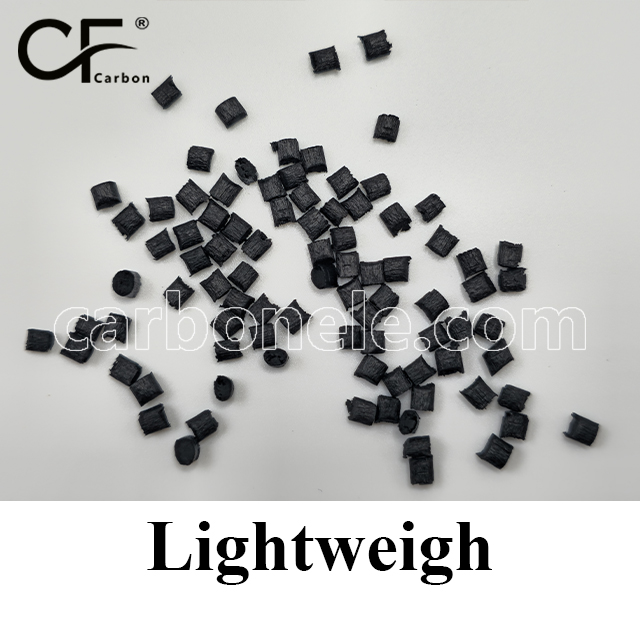
PPA-CF40 for High Load Parts
PPA-CF40 is a high strength thermoplastic reinforced with 40% short carbon fiber, offering exceptional stiffness (~18 GPa), tensile strength (~200 MPa), and thermal resistance up to 240 °C. Ideal for metal-replacement in automotive, electronics, and industrial parts requiring maximum dimensional stability and chemical durability.
Learn More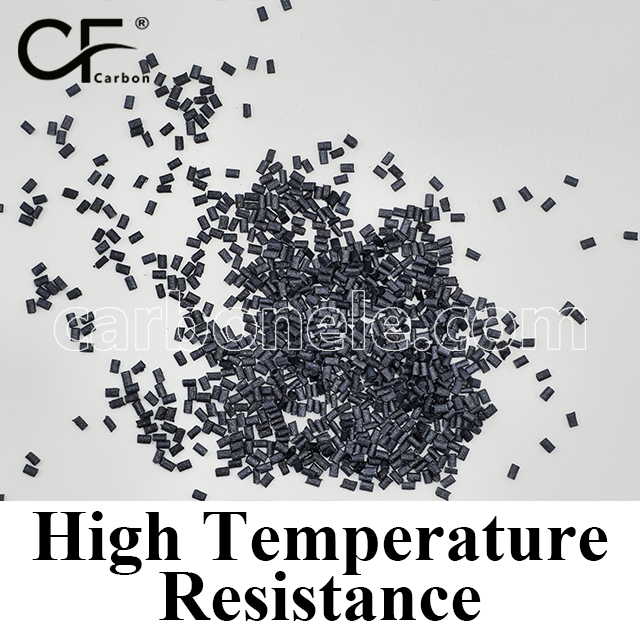
Low Moisture Absorption PPA-CF30
PPA-CF30 is a high performance thermoplastic reinforced with 30% short carbon fiber, delivering excellent stiffness (~15 GPa), high tensile strength (~180 MPa), and thermal stability up to 230 °C. Ideal for metal-replacement in automotive, electrical, and industrial components requiring precision, strength, and chemical resistance.
Learn MoreProduct Feature Box

WEAR RESISTANCE

HIGH STRENGTH

LIGHT WEIGHT

SCRATCH RESISTANCE

ABRASION RESISTANCE

CONDUCTIVE MATERIALS

ANTI STATIC

ECO FRIENDLY
Exceptional Traits of CF Nylon Composites
1. Exceptional mechanical properties
It has high strength and hardness, capable of withstanding large loads and stresses.
2. Lightweight
Compared to traditional materials, it is lighter, helping to reduce the weight of the overall structure, which is of great significance in fields such as aerospace and automotive.
3. Good wear resistance
This enables it to perform well in components with frequent friction, prolonging the service life of the product.
4. Outstanding thermal stability
It can maintain stable performance in high-temperature environments and is suitable for high-temperature working components such as engines.
5. Conductivity and antistatic properties
This feature can prevent the accumulation of static electricity in the electronic and electrical fields, ensuring the safe operation of equipment.
6. Chemical resistance
It can resist the erosion of various chemicals and adapt to different working environments.
7. Design flexibility
It can be customized in shape and size according to specific needs to meet complex design requirements.
8. Cost-effectiveness
Although the initial cost may be higher, due to its long service life and high performance, it is cost-effective in the long run.
For example, in the aerospace field, its lightweight and high-strength characteristics help reduce the fuel consumption of aircraft. In electronic devices, conductivity and antistatic properties ensure the normal operation of the equipment without being affected by static electricity interference.
Company Advantage

Excellent After-sales Service
Carbon (Xiamen) New Material offers all-round, prompt, and professional after-sales support. A dedicated team responds within 24 hours. They solve problems remotely or on-site and provide installation and maintenance training. Feedback is used to improve service. The company also establishes long-term relationships with customers by providing regular maintenance checks and updates, ensuring the longevity and optimal performance of its products.
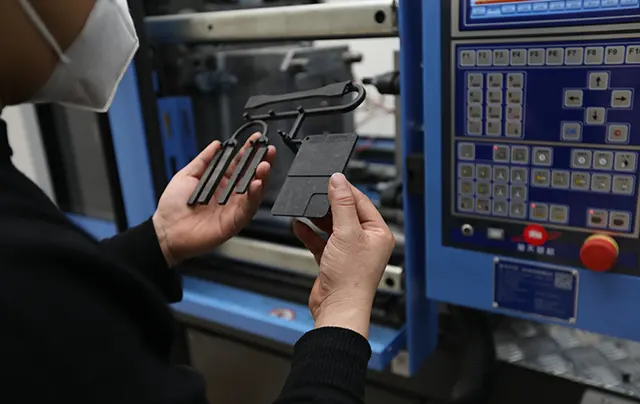
Stringent Quality Control System
Carbon (Xiamen) New Material has a comprehensive quality inspection process in place, from raw material selection to finished product delivery. In raw material procurement, high-precision tests are done. During production, each step is monitored and sampled. Non-destructive testing checks for defects in finished products. This meticulous approach, coupled with continuous improvement efforts based on quality data analysis, ensures that every product leaving the factory meets or exceeds the most stringent industry standards.
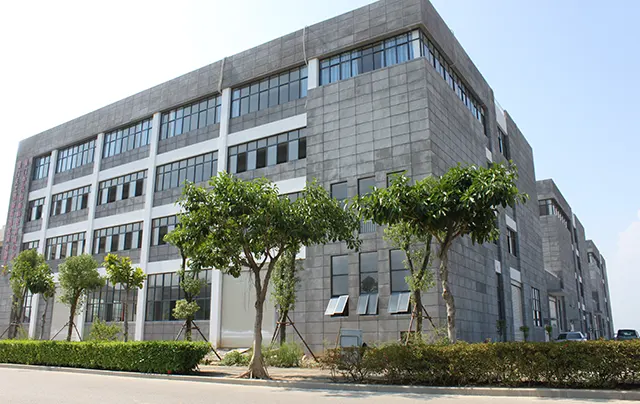
Modern Factory Facilities
In modern factory facilities, carbon fiber-reinforced thermoplastic composites are becoming increasingly important. They are precisely manufactured on highly automated production lines, combining the advantages of carbon fibers and thermoplastics. With strict quality checks and continuous R&D, they are delivered efficiently to customers worldwide, facilitating industrial development.
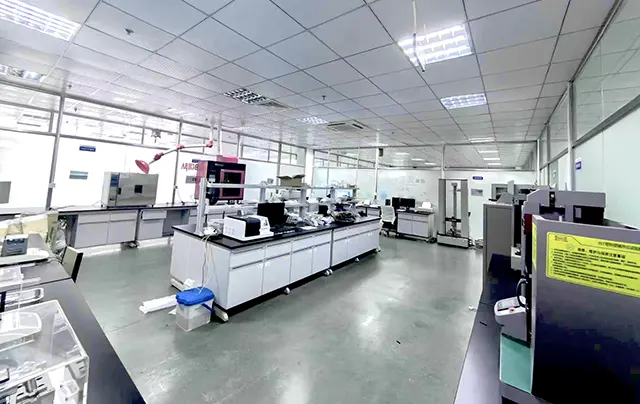
Advanced Laboratory Equipment
1. Performance Testing Equipment Equipped with universal material testing machines, dynamic mechanical analyzers (DMA), thermogravimetric analyzers (TGA), differential scanning calorimeters (DSC), thermal conductivity testers, electrical property testers, etc., to comprehensively evaluate various properties of the materials. 2. Microstructure Analysis Instruments Including scanning electron microscopes (SEM), transmission electron microscopes (TEM), X-ray diffraction analyzers (XRD), etc., for observing and analyzing the microstructure and phase distribution of the materials.
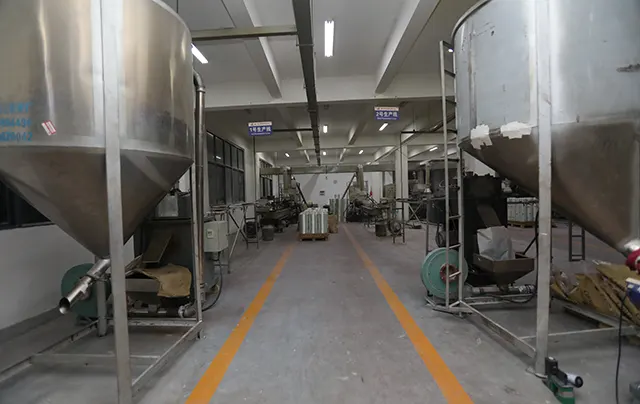
Customization Production Capacity
Carbon (Xiamen) New Material is flexible and can meet unique customer demands. For aerospace, it uses advanced design and simulation for complex, high-performance parts. For the automotive industry, it combines strength with aesthetic and surface treatment. By closely collaborating with customers at every stage of the production process and leveraging its technical expertise, the company ensures that the final product precisely aligns with the customer's specifications and expectations.
Frequently Asked Questions
Carbon (Xiamen) New Material Co., Ltd. aims to provide buyers with "one-stop" worry-free high-quality services. Here you can find all information about carbon fiber engineering plastics. If you still have questions, please send us an email for consultation!
-
FAQ 1: What are the key properties of Nylon Fiber-Reinforced Composites?
Answer: These composites typically exhibit increased strength, stiffness, and improved heat resistance compared to plain nylon.
-
FAQ 2: How are Nylon Carbon Fiber Reinforced Materials manufactured?
Answer: They are usually produced through processes such as injection molding or extrusion, where carbon fibers are incorporated into the nylon matrix.
-
FAQ 3: In what applications are Nylon Fiber-Reinforced Composites commonly utilized?
Answer: They are frequently found in automotive components, aerospace parts, and industrial machinery due to their high performance.
-
FAQ 4: What are the advantages of using Nylon Carbon Fiber Reinforced Materials over traditional metals?
Answer: They offer weight reduction, better corrosion resistance, and design flexibility.
-
FAQ 5: How does the cost of Nylon Fiber-Reinforced Composites compare to other composites?
Answer: The cost can vary depending on the specific formulation and manufacturing process, but it may be higher than some common composites.
-
FAQ 6: Are Nylon Carbon Fiber Reinforced Materials recyclable?
Answer: To some extent, but the recycling process can be challenging and may not be as straightforward as for some other materials.
-
FAQ 7: What kind of maintenance is required for products made from Nylon Fiber-Reinforced Composites?
Answer: Generally, minimal maintenance is needed. Regular cleaning and inspection for damage are often sufficient.
-
FAQ 8: Can the properties of Nylon Carbon Fiber Reinforced Materials be customized?
Answer: Yes, by adjusting the composition and processing parameters, the properties can be tailored to specific requirements.
-
FAQ 9: How do environmental factors affect the performance of Nylon Fiber-Reinforced Composites?
Answer: Exposure to extreme temperatures, humidity, and UV radiation can have an impact, but they are designed to withstand certain environmental conditions.
-
FAQ 10: What are the latest trends in the development of Nylon Carbon Fiber Reinforced Materials?
Answer: Current trends include the development of more efficient manufacturing methods, improved fiber-matrix adhesion, and enhanced material performance.









